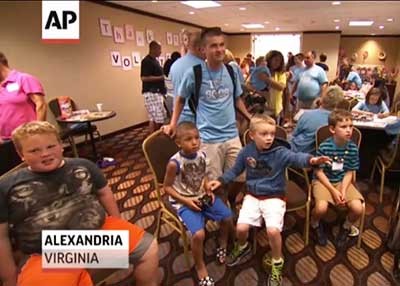Share and Care In The News
Brain and Tissue Bank For Developmental Disorders
The Brain and Tissue Bank for Developmental Disorders provides a great service with the human tissue repository for the study of childhood disorders. The Bank is a way for families to make the greatest gift possible to further medical research.
It is not the policy of the Bank to make the initial contact with the family, so it is important to contact the Bank to register well in advance of the time of death to insure a successful donation. There is no financial cost to the family and the Bank is available by phone to talk to anyone wanting more information without any obligation to register.
The Bank will coordinate tissue recovery and inform researchers of the availability of tissue. The credentials of the researcher will be screened and the recommendations of the Share and Care Cockayne Syndrome Network, Inc. will be considered before tissue distribution is made.
For more information, contact:
Sally Wisniewski, Project Coordinator
University of Maryland at Baltimore
Brain and Tissue Bank for Developmental Disorders
655 West Baltimore Street
Baltimore, MD 21201-1559
1-800-847-1539
Brain and Tissue Bank Website
CS Study: An Update
An Optimistic Update Regarding the CS Study
“I want to thank the Share and Care Network, and especially the parents who gave their consent and the children who donated blood for our CS study. With apologies for the silence, we encountered many more administrative, logistical, and technical delays than we could ever have imagined, but thankfully that’s all behind us”.



